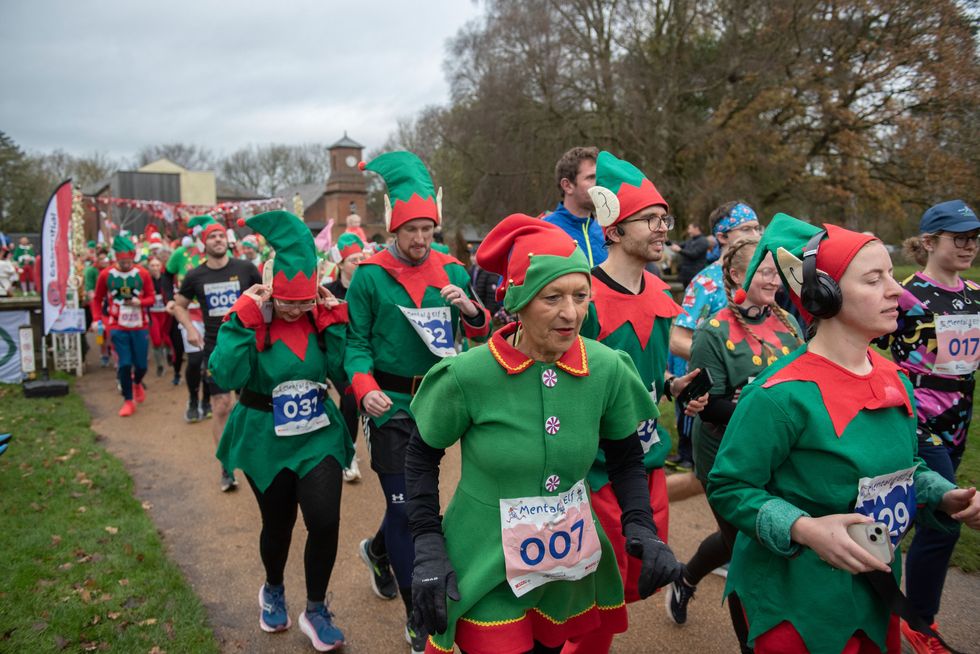Johnson & Johnson on Friday said it would split into two companies, hiving off its consumer health division that sells Band-Aids and Baby Powder from its pharmaceuticals and medical devices business.
The spin-off will create "two global leaders that are better positioned to deliver improved health outcomes for patients and consumers through innovation," Johnson & Johnson said in a statement.
It is the third major company to announce plans to break up its business this week after General Electric and Toshiba.
Johnson & Johnson is still dealing with the fallout from thousands of lawsuits over talcum powder containing traces of asbestos causing ovarian cancer in some people. A US court last year ruled it would have to pay $2.1 billion (£1.57bn) in damages.
The firm has never admitted wrongdoing but stopped selling the talc-based baby powder in the US and Canada in May 2020.
The separation is expected to take 18-24 months, creating two publicly-traded companies, and the transaction will "qualify as a tax-free separation."
Alex Gorsky, executive chair and CEO of the 135-year-old company, said the decision to create a new consumer health business was made following a "comprehensive review."
The board and management believe the split is "the best way to ... drive profitable growth, and - most importantly - improve healthcare outcomes for people around the world," he said.
Gorsky added that the separation "underscores our focus on delivering industry-leading bio-pharmaceutical and medical device innovation and technology with the goal of bringing new solutions to market for patients and healthcare systems, while creating sustainable value for shareholders."
The consumer health branch, which produces Neutrogena skin care products and baby powder, generated $3.7 billion in the third quarter of 2021, nearly 16 percent of the group's total revenue.
Meanwhile, its single-dose Covid-19 vaccine generated nearly $20 billion in revenue in the period.
J&J Chief Financial Officer Joseph Wolk said the split is not linked to the legal woes over talcum powder, nor to the company's recent bankruptcy proceedings.
The firm created a new unit "LTL" to contain all the asbestos-related liabilities, which then declared bankruptcy.
"I think it's important to state upfront that today's announcement is separate and distinct from the talc liability and bankruptcy proceeding that were announced a few weeks ago," Wolk said in a conference call. "We will let the bankruptcy court determine the appropriate adjudication of those liabilities."
Art Hogan of National Securities noted that the "consumer unit has been beset by lawsuits," while J&J's pharmaceutical arm has long been its strongest performer.
Last year, the drug unit generated 55 percent of the company's sales, with another 28 percent coming from the medical device unit, he said.
S&P Global Ratings affirmed the company's 'AAA' debt grade, but said the outlook remains negative noting remaining uncertainties including "around the potential cost to settle talc-related liabilities."
The ratings agency in its analysis said it viewed the breakup as "incrementally weakening the business strength, given the reduction in diversity and scale, even as this enhances the company's growth rate and profitability."
Gorsky will stay on as executive chair but at the start of January his vice chair Juaquin Duato will take over as CEO.
"This planned transaction would create two businesses that are each financially strong and leaders in their respective industries," Duato said.
The company said it has more than 136,000 employees around the world.
The breakup seems to be part of a trend. Earlier this week, General Electric announced plans to split into three publicly traded companies.
Japan's Toshiba said Friday it was splitting into three companies following a campaign by investors to boost the group's shares after a period of upheaval.





















